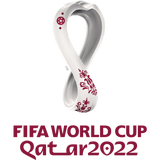
Loew: Germany lacking greed, passion at World Cup in Russia
LONDON (AP) — More than two months after Germany's embarrassingly brief World Cup title defense, Joachim Loew offered a reason for the failure to his coaching compatriots on Sunday: The squad lacked motivation.
"After such a long time at the top," Loew said, "we were missing the last percent, the fire, the passion, and this greed to win a title no matter what."
Loew had been summoned from the floor to address FIFA's World Cup coaches' debrief by Cameroon coach Clarence Seedorf. He was asked to explain what had been done to try to "maintain the proper spirit" in a squad featuring nine champions from Brazil in 2014.
A couple of hours later, under the chandeliers of a London hotel ballroom, the tables were turned. In a session dedicated to France's triumph in Russia, coach Didier Deschamps reflected on the challenge of preventing his newly crowned champions becoming complacent in Qatar in 2022.
The question came from St. Kitts and Nevis coach Jacques Passy who wondered how Deschamps would ensure France "do not fall into the trap" as Germany did. Deschamps did suggest "Joachim would be better at answering" before divulging his concerns.
"A certain doubt perhaps creeps in sometimes but not the same way it used to," Deschamps said through an interpreter. "They think maybe it's easy to do it again and it's very, very difficult to stay focused to stay at the top level."
A task for Deschamps is keeping his players grounded.
"Sometimes you see players run into difficulties because maybe success goes to their heads," Deschamps said. "It's not as easy to stay focused and do everything with the same intensity."
As captain of France, Deschamps won the World Cup on home soil in 1998 and the European Championship in 2000. But after Deschamps' international career ended, France finished bottom of its group at the 2002 World Cup with only one point and was eliminated.
Deschamps has used his own experiences to guide a young group of France players.
"You are no longer the same players," Deschamps recalls telling his squad on the eve of France beating Croatia in the final in July, "people around you will change."
One player whose character has not changed is playmaker Paul Pogba, who Deschamps believes is misunderstood.
"I think the rest of the world, and certainly in France, has an image of Paul Pogba that doesn't really reflect who he is," Deschamps said. "He's been in the national team since 2013 and he's always thought about the collective. There's this idea that he's a bit individualistic and only thinks about himself but that's not the case at all."
Deschamps admires how Pogba has taken on the mantle of leadership and hopes the public perceptions improve.
"I've spoken to him about his relationship with the media and I think he's been unfairly criticized in the past," Deschamps said. "That's why there has been this aggressive vibe and he's had this strained relationship.
"But criticism is part of the job and I think you learn to take that on board as you get more experienced. That's what's happened with him and I think he's gained some respect. He joined us ready to become a world champion and he took the whole squad with him."
Deschamps wants his squad to be expressive — "we don't use a joystick to control them" — but maintaining tactical discipline will be essential to the title defense.
Germany is the perfect case study. Loew's side won only one game in Russia — against Sweden — and lost the other two in the group stage.
"In the first game against Mexico we were caught on many counterattacks," Loew said. "We had some players who were with us a long time who weren't in good form, and we did some things wrong."
It is why Loew sees the benefits of refreshing the squad.
"We have to see how we can integrate some new players in the next years," Loew said, "get some fresh blood into the team."
